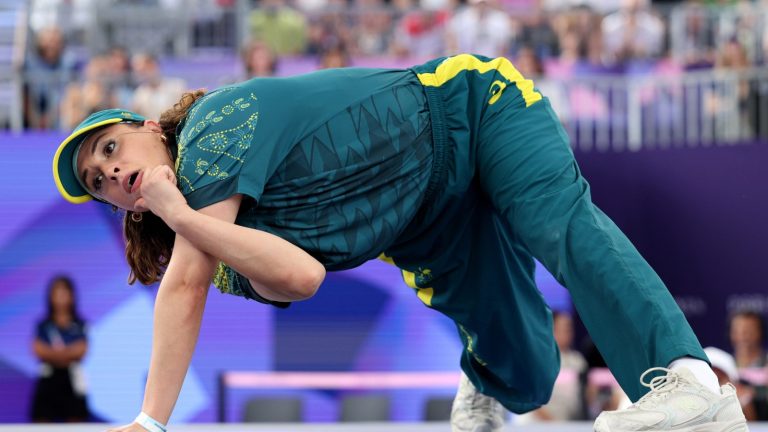Off a residential street deep in the south of Austin, behind a light-up sign that says “South Austin: Still Weird,” sits a cozy, rambler-style watering hole called the Far Out Lounge. An on-and-off spot for live music starting in the early 1900s, the bar got a new life five years ago when Pedro Carvalho and two of his friends took over the business. Carvalho, 37, a longtime musician and Austinite, expanded the bar’s musical repertoire far beyond its previous comfort zone of cover bands and karaoke, hosting everything from low-key dance nights to outdoor blowouts featuring Bikini Kill, Courtney Barnett, and Kurt Vile.
To revamp the historic venue, Carvalho and his friends sunk their savings into the place, took on mountains of yet-unpaid debt, and shelled out about $25,000 for engineering studies and soundproofing to comply with local laws. Before the music began, Carvalho went door to door, inviting his neighbors over to talk about the shows they’d be hosting, and giving out his personal phone number in case of problems with the sound. When music started up in 2019 and a few neighbors still complained, he spent a few thousand more dollars to replace the leaky windows on his neighbors’ homes, just to keep things copacetic. It was a long and costly road. But for Carvalho and many of his neighbors who were happy to see their local dive come back to life, it’s been a dream come true.
So when construction equipment moved into the lot behind the bar earlier this year, Carvalho panicked. “Austin is famous for this exact situation. All these condos and hotels build directly in front of existing venues, and then start calling in noise complaints and trying to shut them down,” he said. With the condo behind his bar now nearly complete, Carvalho fears he will be next to face the wrath of new neighbors. “They want to move into these culturally enriched areas for music,” he says. “And then they don’t want the music.”
In many cities, noise complaints can shut down licensed music venues with surprising efficiency. Calls can trigger license reviews, which can temporarily halt concerts and liquor sales, tanking venues in a matter of weeks. In some cities, it’s unlawful for noise louder than rustling leaves to be audible at the property line — a near impossibility that has left many venues operating essentially illegally, unprotected, and living on a hope and a prayer that no particularly picky neighbor moves in next door. In other cities, vague laws state that any “plainly audible” music is grounds for a crackdown. With such subjective standards, noise-code violations are often enforced with bias, disproportionately filed against Black Americans and people of color. In Boston, Black-owned venues report excessive noise complaints. In Portland, Oregon, many music activists see the city’s biased enforcement of its dubiously vague noise code as part of the reason why every Black-owned venue in the city in the past two decades has shut down within 18 months.
An age-old problem for music venues, noise-related struggles have been in the headlines since Covid-era gentrification brought new residents into long-established neighborhoods. “There are so many complaints happening right now,” says Christopher Naoum of the advocacy and trade association National Independent Venue Association (NIVA). He runs its Sound Advisory Task Force, which has recently reconvened out of desperation. “Venues have historically been in the warehouse district, the warehouse district becomes cool, they put up a bunch of glass condos. Then people move into the condos, say that there’s too much ‘noise,’ and then shut down the venues. That story happens all over the place.”
From L.A. to London, Tempe, Arizona to Des Moines, Iowa, venues have had to pull the plug early, kick out bands in favor of solo performers, or shutter entirely due to complaints from neighbors. This fall, the 111-year-old Montreal music institution La Tulipe was ordered to shut down after a man purchased the building next door and converted it into condos; the future of the venue is still undetermined. St. Vitus, a long-running independent metal venue in Greenpoint, Brooklyn, was shuttered this summer in what one city council member called a “weaponization of the 311 system.” Neighbors filed complaints about noise and inadequate occupancy permits, with one complainer even telling the city, “I will continue to make this complaint on a daily basis.” Desperate sound guys and venue managers across the country have put complainers up at hotels for several nights a month, and even paid their rent to quiet their crusades.
It’s nearly impossible to pinpoint how many independent venues have closed due to noise complaints, as they are just one of many challenges concert halls face in a market now dominated by venue chains. While independent venues shuttered during the pandemic, venue domineer Live Nation — which can much more easily close its doors for soundproofing or for an infectious outbreak — posted its best years in 2022 and 2023. But even large theaters haven’t been spared in the noise crusade: All year, New York City’s Forest Hills Stadium — the historic Queens tennis arena and concert venue from which a young Joey Ramone might’ve heard the glorious racket of the Beatles or the Stones in the 1960s — has been embroiled in a legal battle over noise that has pit neighbors against neighbors. When a judge tentatively allowed the music to bang on this fall, sonic private eyes and city officials patrolled the neighborhood with microphones and decibel meters, gathering ammunition for the battle.
But as cities reconsider the wisdom of office-saturated downtowns in our post-pandemic world, some musicians turned policy nerds are taking the fight for your right to party to city halls and state houses. From taking enforcement matters out of the hands of police to requiring developers to better soundproof new condos, they’re changing noise laws to better support music and local clubs, while ensuring a good night’s sleep for all. “As unromantic as it is, spaces for creativity exist inside of a real-estate process,” says Philadelphia DJ and urban planner Michael Fichman — and a condo, he says, is almost always an easier sell to a developer or a city official than a music venue. “So there needs to be a little more care and deliberate planning to keep music in the city.”
Now venue owners are wondering: Will the changes move fast enough to protect live music?
Sacha Lecca for Rolling Stone
IN 2021, WHEN PANDEMIC-ERA restrictions eased and live music was reborn, the beast of noise complaints reawakened with it. In New York City alone, noise complaints nearly tripled between late 2019 and late 2022. Many other cities have heard more noise complaints in recent years — a reality many in the music world attribute to an increase in the number of people working from home, as well as the fact that many people relocated to neighborhoods in the relative quiet of the pandemic’s peak without understanding their new home’s full sonic personality.
But despite the grievances, the pandemic also revealed that cities and neighborhoods built to serve a 9-to-5 crowd were vulnerable — and that nightlife could be a city’s salvation. Behind the scenes, musicians turned urban planners like Fichman are seizing on that glimmer of hope. Fichman, who now works internationally as an expert in the field of “nighttime economies,” spent years as a DJ, touring the globe throughout his career. On the road, he began to wonder why some cities consistently had thriving club scenes while others felt dead. He realized that a thriving music scene couldn’t be built on passion and energy alone. It also needed sustainable, secure spaces to party, which couldn’t be easily run out of town as neighborhoods changed. And that couldn’t be left to chance. “You have to sit all these things on top of a foundation of governance,” Fichman says. “Somebody has to be responsible for thinking about this.”
Fichman decided to be that “somebody” in Philadelphia. In 2021, he spearheaded the formation of the city’s Office of Nighttime Economy — better known around the country as “night mayor” offices. The country’s first night mayor office opened in New York in 2017, and the practice has been growing since the pandemic, with Washington, D.C., Boston, Pittsburgh, Orlando, New Orleans, and several other cities opening their own offices in hopes of giving businesses that make a living — and make noise — after dark a voice in city hall.
Not long after Fichman helped launch the Philly office, longtime music advocate and lifelong Philadelphian Raheem Manning became the city’s first night mayor. After going on a tour of clubs in Philadelphia, partying with guests and talking with owners and neighbors about the challenges they face, one of the first things the new office did was change how noise complaints are handled in Philadelphia. Instead of various agencies like 311 and the police acting on anonymous complaints, the night mayor office now mediates between neighbors and venues to find long-term sound-abatement solutions. Some other cities’ night mayors have gone even further, removing enforcement duties from police officers, who often lack equipment to measure sound levels and can end up enforcing noise complaints in subjective and often racially biased ways. Instead, these offices now handle all of the complaints — complete with sound-measuring devices to remove the subjectivity.
And in other cities, like Berlin, music-friendly urban planners have made money available to venues to help offset the cost of soundproofing. In Austin, the longstanding Hotel Occupancy Tax — added onto hotels and short-term rentals, not full-time residences — funnels money toward tourism destinations, artists, and, sometimes, to venues. In cities around the country, from Oregon to Iowa, activists are working to remove subjective noise codes in favor of more measurable options that could help curb inequitable and biased enforcement. Last year, New York City officials revised a law that let private citizens act as sonic bounty hunters, issuing noise citations to venues and keeping up to 50 percent of the fee; one Queens man had cashed in by issuing more than 500 complaints, costing venues more than $600,000. Public pressure, too, is encouraging some city officials to embrace the hubs of their music scenes: In Montreal, a drums corps and brass band posted up near the complaining new neighbor’s building in an intentionally clamorous protest against the recent closure of La Tulipe. Since then, the city council has promised to revise its noise code, removing music venues from the requirement to be totally inaudible past their property line.
As more and more musically inclined policy nerds work to find a tenuous peace between those who want to sleep and those who want to rage, many are looking to a city famous for stacking new condos on top of long-established neighborhoods: San Francisco. A decade ago, an influx of new San Franciscans were continually calling to complain about some of the city’s nightlife strongholds, including a slew of LGBTQ+ party spaces. One club reportedly spent six figures on legal defenses against noise complaints — some of which were lodged on days that the venue wasn’t even open.
So in 2015, the city took a bold step to support the music. It put the responsibility of ensuring new residents’ peace and quiet on new developers, rather than on the venues. It required every new residential development planning to build within 300 feet of an existing club to go through an added layer of review, through which the city has asked developers to upgrade their building materials, add HVAC systems so residents can keep cool without keeping their windows open, or rearrange floor plans so that bedrooms aren’t adjacent to a venue’s booming speakers. “Under building code, developers were already taking into account traffic noise,” says Ben Van Houten of San Francisco’s Nightlife and Entertainment division; designing around this preexisting sound, he said, wasn’t much different.
The nearly decade-long experiment has benefited both clubbers and those trying to get some sleep: Since the policy was put in place, there have been no noise complaints filed by residents of the roughly 40 developments that have gone up in these zones, says Maggie Weiland, the executive director of the city’s Entertainment Commission. Now other cities, including Washington, D.C., are considering similar legislation.
AS THE NEW condo behind South Austin’s Far Out Lounge gets ready to open, Carvalho has been preparing for the worst. In some places, the new building is mere feet away from his venue. Still in debt from buying the business and ensuring the old neighbors could get some sleep, he can’t afford to upgrade even more windows.
But as it turns out, venue owners like him might not have to. This fall, the city of Austin also took a cue from San Francisco, passing a series of new sound policies aimed at protecting both venues and neighbors. Now, when developers propose new residential buildings and hotels, they’ll be required to do a sound assessment at night. Austin won’t mandate that developers change their building plans, like San Francisco does. But the city’s entertainment-services manager, Brian Block, says that it’s in the developer’s best interest to understand what residents are going to be hearing at night, and to build accordingly if they want to ensure the satisfaction of future renters or hotel guests; clubs with music playing at a legal level, he says, can’t be required to turn down, regardless of who moves in next door and how many times they complain. And if developers do build accordingly, Block says, that helps venues, too. “Whether noise complaints are valid or not, they still take time away.”
All this has given Carvalho enough hope that he has become yet another musician who has added “public servant” to his résumé. A few months ago, he started as a commissioner with the city’s volunteer music commission. He and 10 other artists are scheming up recommendations to help the city council better support musicians and venues — from suggestions on preserving Austin’s musical legacy to providing more aid to independent artists and venues in an increasingly consolidated, sound-sensitive landscape.
“Making your own noise and seeing what you can get away with is part of the culture,” says Carvalho, reflecting on the years he spent setting up generator shows at abandoned buildings and blasting through punk songs with his bands before the cops showed up. “I think it’s important to get in a little trouble and push the limits.” But now that he’s building a community hub that he hopes will mean something to him and his neighbors not just today, but years from now, the turn-it-up-and-hope-for-the-best approach just didn’t feel sustainable. “As a music venue,” Carvalho says, “you have to try to stay within the limits as much as possible and create longevity for all. You can’t be as free with your bullshit.” These days, it’s a trade Carvalho’s more willing to make — especially now that the city is increasingly open to working with venue owners like him. He owes that effort, he says, to his delightfully noisy employees, music scene, and city.




Leave a Comment